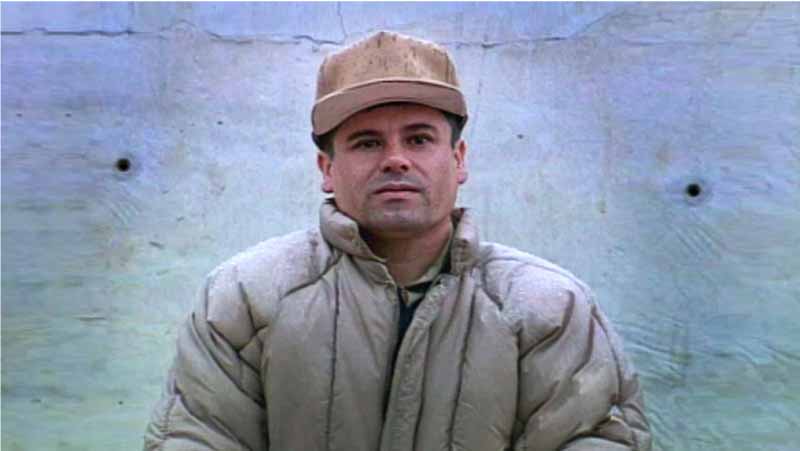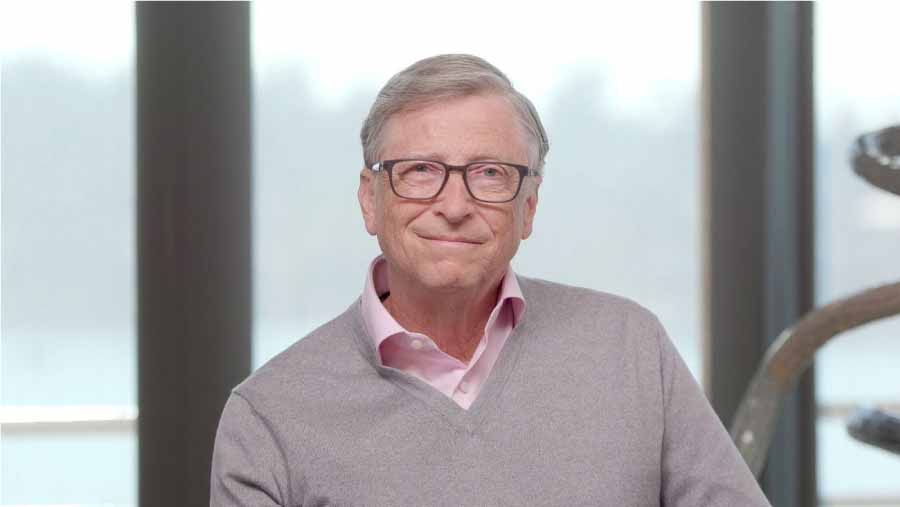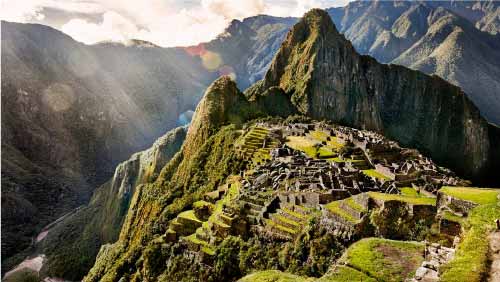Joaquin Archivaldo Guzman Loera, also known as “El Chapo,” was one of the most important leaders of Mexico’s Sinaloa cartel and one of the world’s most wanted criminals. He was born on April 4, 1957 in La Tuna, a small city in the state of Sinaloa, Mexico.
El Chapo began his career in the drug trafficking world in the 80s, working for the Guadalajara cartel, which was at the time the most powerful cartel in Mexico. After cartel leader Miguel Angel Felix Gallardo was captured in 1989, El Chapo joined the Sinaloa cartel, which became Mexico’s most powerful cartel in the following years.
During his career, El Chapo was accused of smuggling drugs into the United States, homicide, kidnapping and money laundering, among other crimes. He was captured several times, but managed to escape from prison twice, the last of which was in 2015 through a tunnel built under his cell.
Finally, in January 2016, he was recaptured in an operation in the city of Los Mochis, in Sinaloa, and extradited to the United States in January 2017. He was tried in federal court in New York on drug trafficking and money laundering charges, and in February 2019 he was convicted of all charges and sentenced to life in prison plus 30 years in prison.
El Chapo’s life has been the subject of numerous films, documentaries and television series, including the popular Netflix series “El Chapo.” His career and crimes have been the subject of much controversy and have highlighted the complexity of drug trafficking and violence in Mexico.
Your family
El Chapo Guzmán had a large family. He was married several times and had at least 10 children.
With his first wife, Alejandrina María Salazar Hernández, he had four children: César, Iván Archivaldo, Jesús Alfredo and Alejandrina Gisselle. Ivan Archivaldo and Jesus Alfredo are both senior members of the Sinaloa cartel and have been charged with drug trafficking and other crimes.
With his second wife, Griselda López Pérez, he had two sons: Edgar and Joaquín. Edgar was killed at a shopping mall in Culiacan in 2008, while Joaquin, also known as “El Chapito,” has been charged with drug trafficking.
With his third wife, Emma Coronel Aispuro, El Chapo had twin daughters in 2011. Emma Coronel Aispuro has also been the subject of media attention due to her relationship with El Chapo and her support for him during his trial in the United States.
El Chapo also had other children with unmarried women, and at least one of them, Juan Carlos Ramírez Abadía, is known to have been arrested on drug trafficking charges in Mexico.
His power
El Chapo Guzmán became one of the most powerful criminals in the world during his career in the world of drug trafficking. He led the Sinaloa cartel, one of the most powerful drug trafficking groups in Mexico and around the world.
The Sinaloa cartel was known for its ability to produce and distribute large quantities of cocaine, heroin and methamphetamine around the world. El Chapo was also known for his ability to evade capture by Mexican and U.S. authorities for many years, earning him a reputation as one of the world’s most cunning criminals.
El Chapo is believed to have accumulated enormous wealth during his career in drug trafficking. In 2009, Forbes magazine included him in its list of the richest men in the world, estimating his fortune at more than one billion dollars. He is also believed to have had enormous political influence in Mexico, and to have used his wealth and power to bribe government officials and maintain his control over his criminal organization.
El Chapo’s power and influence have been the subject of much controversy and have highlighted the complexity and scope of the worldwide drug trade. His capture and extradition to the United States were considered a major blow against the Sinaloa cartel, although the group is also known to remain one of the most powerful drug trafficking organizations in the world.
Murders
El Chapo Guzmán has been accused of being behind numerous murders and acts of violence in Mexico and around the world. His criminal organization, the Sinaloa cartel, is known to have been involved in the production and distribution of large quantities of cocaine, heroin, and methamphetamines, and has been linked to acts of violence and murders related to drug trafficking.
El Chapo has been specifically accused of involvement in several murders, including that of an archbishop in 1993, that of a journalist in 2004 and that of a lawyer in 2009. He has also reportedly ordered the killing of rival gang members and people believed to be police informants.
In addition, the Sinaloa cartel is known to have been involved in drug-related violence in Mexico, including armed clashes with police and other criminal groups. Mexico’s drug war is estimated to have killed tens of thousands of people in recent years, and the Sinaloa cartel is believed to have been involved in many of these acts of violence.
El Chapo’s role in these murders and acts of violence has been the subject of much controversy and has highlighted the complexity and violent nature of the drug trade in Mexico and around the world.
Politics
El Chapo Guzman and the Sinaloa cartel have been the subject of much controversy and political scrutiny due to their alleged ties to politicians and government officials in Mexico.
The Sinaloa cartel is believed to have used bribes and threats to maintain its control over territory and protect its drug trafficking operations. El Chapo and other cartel members have reportedly had close relationships with politicians and Mexican government officials, and have used their influence and resources to influence policy and legislation in Mexico.
In addition, the Sinaloa cartel has reportedly used its power to influence elections and local politics in some parts of Mexico. It has also been suggested that the cartel has used violence and intimidation to prevent politicians and public officials from taking action against it.
El Chapo’s role in these matters has been the subject of much controversy and has highlighted the complex relationship between drug trafficking and politics in Mexico. His capture and extradition to the United States were seen by many as a victory for justice and the rule of law, though there has also been criticism over the government’s focus on fighting drug trafficking and corruption in Mexico.
Your wealth
El Chapo Guzmán became one of the richest drug traffickers in the world during his career in the Sinaloa cartel. He is believed to have accumulated great wealth through his illegal activities in the drug trade, with estimates varying widely as to his net worth.
In 2009, Forbes magazine included El Chapo in its list of the richest people in the world, estimating his fortune at more than one billion dollars. However, it is difficult to accurately determine the net worth of a drug trafficker, as much of his wealth is generated in the informal economy and on the black market.
Despite his enormous wealth, El Chapo also stood out for his modest and low-key lifestyle, unlike other well-known drug traffickers who were notoriously ostentatious and extravagant. El Chapo is known to have had a large network of properties in Mexico and elsewhere, including homes, ranches and businesses, as well as a fleet of planes and helicopters.
In 2019, El Chapo was ordered to pay $12.6 billion in restitution to the United States as part of his drug trafficking conviction, although a significant amount of this sum is unlikely to be recovered, as much of his wealth lies outside the legal financial system.
Mode of operation of El Chapo
El Chapo Guzmán and the Sinaloa cartel stood out for their ability to produce and distribute large quantities of illegal drugs around the world. Its mode of operation in drug trafficking involves a complex network of producers, distributors and traffickers that stretched throughout Mexico and other countries.
The Sinaloa cartel is known to have used a variety of methods to transport drugs, including planes, submarines, tunnels and ships. They have also been reported to have used people and vehicles to transport drugs across borders and to distribute drugs locally.
In addition to its drug trafficking, the Sinaloa cartel has also been involved in other crimes, including kidnapping, extortion and robbery. They have reportedly used violence and intimidation to maintain their control over territory and protect their criminal operations.
El Chapo’s role in these crimes has been the subject of much controversy, and it has been alleged that he has ordered the deaths of people believed to be police informants and rival gang members. It has also been suggested that he has used his power and influence to influence policy and legislation in Mexico and other countries.
The modus operandi of the Sinaloa cartel, and El Chapo in particular, is an example of the complexity and violent nature of the worldwide drug trade.
El Chapo prison breaks
El Chapo Guzmán is known to have escaped from prison on two separate occasions. The first time was in 2001, when he managed to escape from the maximum-security Puente Grande prison in Jalisco, Mexico, allegedly hiding in a laundry cart. He was recaptured in 2014, after spending more than a decade on the run from justice.
In 2015, El Chapo escaped from prison for the second time, this time from Mexico’s maximum-security Altiplano prison. He is believed to have escaped through a 1.5 km long tunnel that had been built from his cell to a house outside the prison. The escape was an embarrassing blow to the Mexican government, which had vowed to keep El Chapo in custody after his capture in 2014.
El Chapo’s ability to escape prison has been attributed to his cunning and widespread corruption in the Mexican justice system. He has reportedly bribed prison officials and members of the police to obtain information and support during his escapes.
El Chapo’s escape from prison in 2015 led to an intense manhunt by Mexican and US authorities, and he was finally recaptured in 2016 in Los Mochis, Sinaloa. After his second recapture, he was extradited to the United States, where he was convicted on drug trafficking charges and other crimes.
Henchmen of El Chapo
El Chapo Guzmán has had a network of loyal henchmen and trusted associates who have helped maintain his power and control over the Sinaloa cartel and its drug empire. Some of his closest henchmen and associates include:
Ismael “El Mayo” Zambada: One of El Chapo’s trusted associates, who is believed to have been involved in the drug business for decades. Zambada has been the top leader of the Sinaloa cartel since El Chapo’s capture in 2016.
Juan Jose Esparragoza Moreno, alias “El Azul”: One of the founders of the Sinaloa cartel and a close ally of El Chapo. Esparragoza Moreno was a key leader of the Sinaloa cartel until his alleged death in 2014.
Dámaso López Núñez, alias “El Licenciado”: A former prison officer who became one of El Chapo’s closest allies. López Núñez joined the Sinaloa cartel after his release from prison in 1999 and became a senior cartel official. He was arrested in 2017 and extradited to the United States in 2018.
Hector Beltran Leyva: One of the leaders of the Beltran Leyva cartel, a rival organization that had previously been associated with the Sinaloa cartel. Beltran Leyva was arrested in 2014 and died in prison in 2018.
These are just a few of El Chapo’s best-known henchmen and associates. Over the years, he has had many other loyal collaborators who have helped build and maintain his drug empire.
His political, artistic and government friendships
During his criminal career, El Chapo Guzmán has been known for having connections with political and entertainment figures in Mexico and other countries. Here are some of his alleged friendships and associates:
Political figures
El Chapo Guzmán has reportedly had ties to high-level politicians in Mexico, including mayors, governors and members of Congress. Some reports suggest he has bribed public officials to obtain protection and political favors. In 2019, a witness during El Chapo’s trial claimed he had paid a $100 million bribe to former Mexican President Enrique Peña Nieto, though Peña Nieto has denied these allegations.
Entertainment figures
El Chapo Guzmán has also been associated with several celebrities in Mexico and other countries, including actors and singers. It has reportedly provided funding for film productions and financed live music concerts. One of the best-known artists to be linked to El Chapo is regional Mexican music star Larry Hernandez, who was arrested in 2015 and charged with kidnapping and assault for allegedly collaborating with El Chapo.
Foreign governments
In addition to his alleged connections to politicians and celebrities in Mexico, El Chapo Guzmán has also been accused of having ties to foreign governments. In 2010, he was reported to have bribed the police and military in Honduras to secure drug trafficking routes. It has also been suggested that he has had ties to politicians and guerrilla groups in Colombia.
It is important to note that many of these associations and friendships are unproven allegations and some may be exaggerated or false. However, the existence of these relationships suggests that El Chapo Guzmán has had a network of contacts and support that has helped protect and expand his drug business over the years.
The social works of El Chapo
There is no evidence that El Chapo Guzmán did significant social work during his criminal career. Instead, his fortune has been accumulated largely through illegal activities related to drug trafficking and other criminal activities.
Although there have been isolated reports of El Chapo Guzmán performing charity acts in some communities, many argue that such acts are largely a publicity stunt designed to improve his public image. Moreover, many argue that whatever aid he has provided has been outweighed by the damage caused by his drug trade, which has contributed to violence and corruption in Mexico and other countries.
El Chapo Guzmán’s criminal activity is widely believed to have had a profoundly negative impact on the communities where he has operated, leading to death, suffering and insecurity for many. While some may see his criminal activities as a form of resistance against the system, many others see him as a dangerous criminal who has harmed countless individuals and communities.


